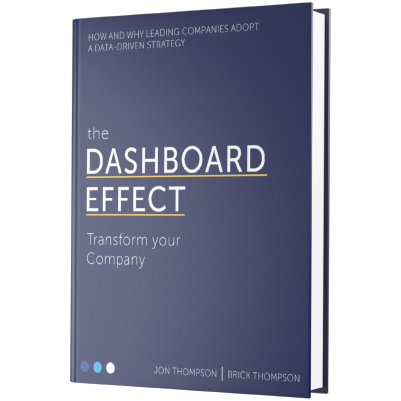Jill Belconis, career CEO and former YPO International Chairman, is an accomplished business leader with a passion for helping fellow CEOs scale their businesses with clarity and alignment. Jill’s strategic coaching and leadership consulting is in high demand, and we’re grateful for the insights she shared during our recent Expert Insight Series interview.
Prior to starting Jill Belconis Enterprises, Jill was President and CEO at Shelter Mortgage. Where, even in the midst of recession, she grew the company an average of 20% annually, and scaled it to 500 employees across 35 states before selling in 2013.
Jill was elected to the prestigious Young Presidents’ Organization in 1997, and in 2011 she became the first woman to be elected as YPO’s International Chairman of the Board. Her TED talk highlights her experiences and women’s unique talents for leadership.
Watch the full interview below or listen to the podcast episode:
Top 5 takeaways:
- Tough economic times are cyclical, and they present an opportunity to dig in with strategic thinking and differentiate your company.
- Focus on your most important priority. Be resolute in saying “no” to distractions.
- “A Team” employees value accountability, and a Job Scorecard is a great tool to define expectations and drive job ownership.
- Business leaders don’t have to play the hero. They should build a team they can rely upon to share the load.
- Through engagement and trust, data visibility can become your strongest tool for building a data-driven culture.
Remember, Tough Economic Times are Cyclical
With a looming recession, many leaders naturally adopt a defensive stance. But Jill encourages business leaders to remember that economic fluctuations are cyclical in nature and present an opportunity to gain momentum while competitors huddle. Research from the National Bureau of Economic Research confirms there have been eleven distinct cycles since the 1940s. Starting with that premise, it’s possible to have a glass half-full mentality, and even adopt an offensive stance during a recession.
Challenging economic times provide unique opportunities for differentiation. Bain & Co.’s research shows that companies who took opportunities during the 2008 recession vastly outperformed those who did not. Leaders should ask hard questions, use data insights, think strategically, and focus on what they DO have, rather than what they don’t have.
Focus on the “One Thing”
Many leaders develop extensive task lists of items they need to complete. But to grow a business, laser focus is critical. Business coach Randy Nelson asks, “What do you need to say NO to, to free you up to focus on your most important priorities?” So ask yourself – What is the MAIN thing? What initiative is critical for success?
At Shelter Mortgage, despite a 16% interest rate, Jill and her organization found success through focusing on their main thing – partnerships, and they avoided the temptation to engage in popular subprime mortgage loans (and the subsequent fallout). To find your focus, Jill recommends Jim Collin’s Flywheel Concept. After you’ve identified your flywheel, learn to say “no.” Breakthroughs come to leaders who are proficient staying focused on their one thing. Jill writes a great blog article for more on this topic.
Outrun the Great Resignation – Use the Job Scorecard
For any organization, Jill asks, “Do you have a culture of accountability?” In order to scale business, leaders must trust their team to contribute. As a leader, you need to maintain oversight, but that doesn’t mean micromanagement. Instead, distribute ownership of the growth plan with a job scorecard.
Scorecards support employee engagement and accountability through surfacing KPIs and automating consistent, empirical feedback. No matter the size of your organization, employees should never have to wonder, “Am I performing?”, “Is my position secure?”, or “Is my contribution valuable?” Vague, constant pressure to “do better” creates insecurity and burnout, while fair, objective accountability creates a high-performing team culture. Jill writes more on this subject in her recent blog article.
Don’t Go it Alone
Leaders often fall prey to the illusion that they must do it all alone. The assumption that tasks require their personal involvement to be done correctly or that delegation is more time consuming than taking care of it themselves will quickly wear down leaders. Jill’s main advice to leaders is to realize these assumptions are wrong. Business leaders are not in it alone, and they need to rely on their team.
To scale up (Jill’s forte), you must “democratize the flywheel.” Delegate responsibilities wherever possible and use data intelligence to automate accountability and oversight. Jill recommends Patrick Lencioni’s new book, The Working Genius, that will be released in September. He’s focused on recognizing and harnessing the six unique geniuses employees bring to an organization.
Winning with a Data-Driven Culture
One of the biggest hurdles in building a data-driven culture is cultural resistance. Jill discusses the #1 reason for employee resistance to job scorecards and data-driven cultures – a belief that the data isn’t right. This brings us to the heart of the matter – trust. Lack of trust is one of the Five Dysfunctions of a Team, according to Patrick Lencioni, so the need for valid data cannot be overstated. To build a data-driven culture, employees must trust the data they see is accurate, whether it’s on a job scorecard or company dashboard.
Blue Margin’s CEO, Brick Thompson, and VP of Delivery Operations, Caleb Ochs, discuss how data warehousing can help with data quality in their podcast: Do You Really Need a Data Warehouse?. Additionally, Jill advises that leaders involve their employees in the defining the KPIs they’re held accountable to. This creates the buy-in needed to overcome resistance to change. Through engagement and trust, data visibility can become your strongest tool for growth.
If you’d like to contact Jill, she can be reached at jill@jillbelconis.com or www.jillbelconis.com
If you’d like to explore how Blue Margin’s team can help you use data visibility to drive growth and team accountability, contact us below!
